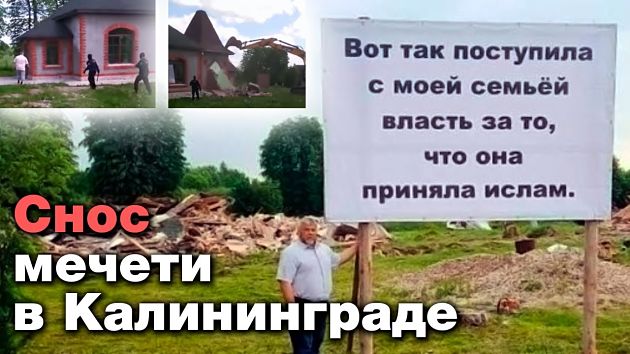Unfortunately, we are forced to cool the enthusiasm of such “optimists”. The resolution issued by the Constitutional Court (CC), which we suggest you study carefully before commenting on it, in our opinion will not change much in the practice of the struggle between Chekists and priests against all dissenters, these new outcasts of the “Russian world”, which by definition includes Orthodox Christians with Muslims, Buddhists and other “foreigners” living on the outskirts (there should be no “Slavs” there).
First of all, it is necessary to explain what is being discussed in this resolution. It is not about the protection of religious freedom as an independent problem – otherwise it would have been necessary to start with the repeal of the “Yarovaya Laws” – but exclusively about the use of premises “as intended” or “not as intended”. That is to say, it is a question of interpretation of the provisions of the Land Code, which is clearly reflected both in the resolution itself and in its title.
Moreover, as the text of the resolution shows, the decision made is not unambiguous, as some journalists and commentators have presented it, but rather ambiguous. And the last word is given to the so-called “law enforcers,” who in the conditions of Putin’s Russia are the same church-controlled individuals and officials: “If there is still a question of bringing the owner to administrative responsibility for using the land plot for a purpose other than its intended purpose, the law enforcers must consider the entire set of factual circumstances indicating the transformation of residential premises into a cult or administrative (official) premises, the location of which is provided for on land plots with such uses as ‘performance of religious rituals’ and ‘religious management and education'”.
In order to apply the resolution of the CC in their favor, as in other similar cases, they are provided with a loophole. In particular, it states: “The CC of the Russian Federation decided that the disputed provisions of the Constitution of the Russian Federation are not contradictory and clarified their constitutional-legal meaning, according to which they do not imply that the owner of a land plot ‘for the purpose of conducting personal auxiliary agriculture’ and a residential building located thereon is subject to administrative responsibility (under Part 1 of Article 8. 8 of the Code of Administrative Violations of the Russian Federation) in cases when a religious organization is given the opportunity to conduct worship, religious rituals and ceremonies in these premises, as well as to use the address of these residential premises as the address of the religious organization, and they do not allow such use of these residential premises when they actually lose their residential characteristics and acquire the characteristics of a cult or official premises of a religious organization”.
In other words, when they need to suppress religious meetings in residential premises, they will now try to prove that they have “lost their residential character and acquired the characteristics of a sect,” to which the permissive provisions of this resolution do not apply.
Therefore, even in the purely technical area of the use of premises “as intended” or “not intended” for prayer, this is certainly an achievement, but a very small one. Because it does not solve the main problems of the functioning of “nonconforming” religious organizations. First, to use such premises in this way, it is necessary to register a religious organization, which is extremely difficult in the realities of Putin’s Russia. But even the registration of a religious organization is not a panacea, because many nonconformist organizations, whether open or closed, were not closed because of the “improper” use of premises. The reasons for their closure can range from fire code violations, to improper documentation and signage on the premises, to possession of prohibited literature that was miraculously “found” there by law enforcement officials. And in the worst case, an imam’s car could be shot at, as happened to a registered religious organization in Moscow. And this was still a relatively mild version, considering a whole series of cases in which imams were simply shot, including those who held high positions in the most official “spiritual administrations” rather than in local religious organizations.
In short, all those concerned should understand that the problems of religious freedom in the country will not be solved if the court or “law enforcers” make concessions regarding the application of the Land Code, sanitary norms, fire safety norms, etc. On the contrary, if all these norms are not applied, the problems of religious freedom in the country will not be solved. On the contrary, if all these norms are applied, the main obstacles to religious freedom will be removed.

